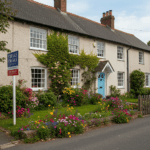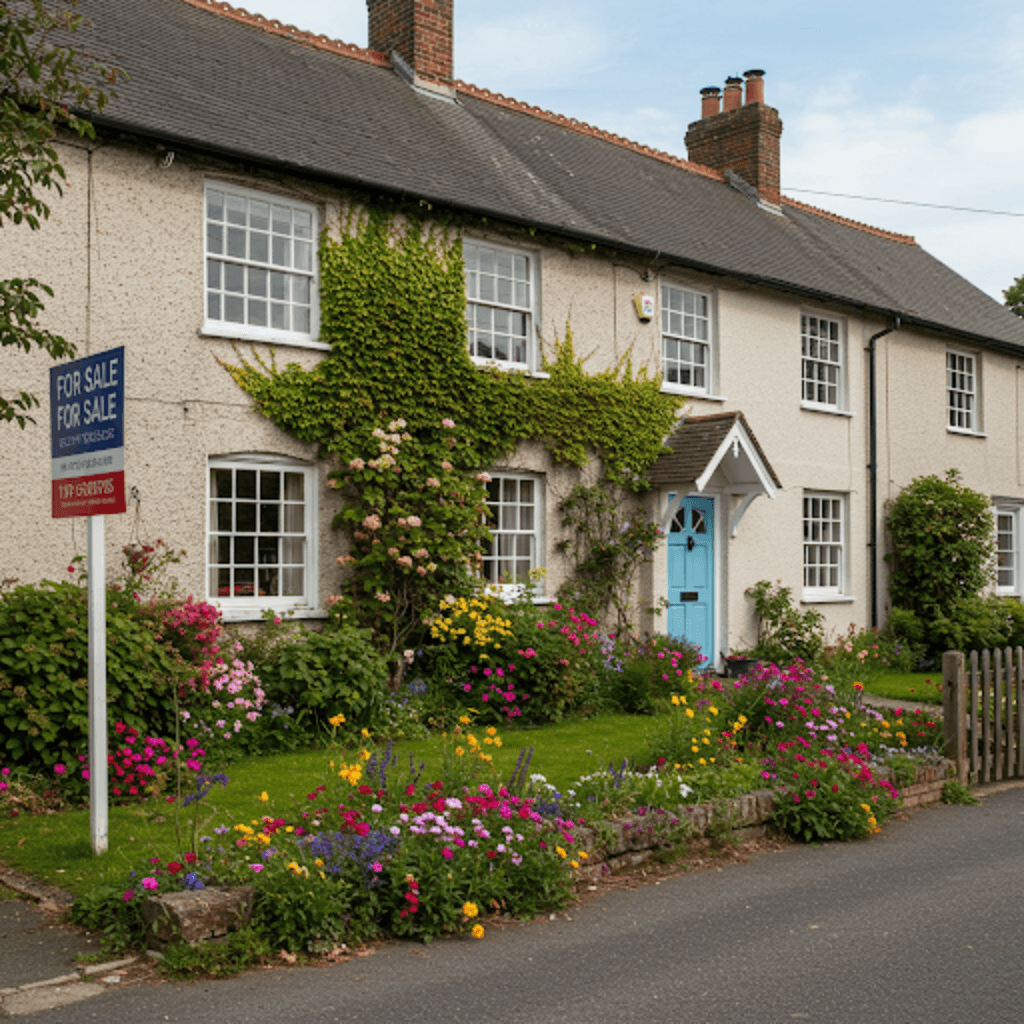
Dreaming of a Cottage for Sale? Your Guide to Finding the Perfect Rural Retreat
The allure of a cosy cottage, nestled amidst rolling hills or perched by a babbling brook, is a quintessential British dream. Escaping the hustle and bustle of city life for a slower pace, surrounded by nature, is an increasingly popular aspiration. But finding the perfect cottage for sale requires more than just a whimsical notion; it demands careful planning, diligent searching, and a realistic understanding of the market. This guide will walk you through the essential steps, offering insights and advice to help you navigate the journey to cottage ownership.
Defining Your Cottage Dream: Needs vs. Wants
Before you start scouring property websites, take some time to define exactly what you’re looking for. Consider your lifestyle, budget, and long-term plans. Are you seeking a weekend escape, a permanent residence, or a potential holiday let? This will significantly influence the type of cottage, location, and features you prioritise.
Create two lists: “Needs” and “Wants.” “Needs” might include the number of bedrooms, proximity to essential amenities (like shops or a doctor’s surgery), a reliable internet connection (especially if you plan to work remotely), and perhaps a manageable garden. “Wants” could encompass features like an open fireplace, exposed beams, a large garden, or a specific architectural style (e.g., thatched roof, stone walls).
Location, Location, Location: Choosing Your Ideal Setting

The UK boasts a diverse range of idyllic locations perfect for cottage living. From the rugged beauty of the Scottish Highlands to the charming villages of the Cotswolds, the dramatic coastline of Cornwall to the tranquil Norfolk Broads, the choice is vast. Consider the following factors when selecting your preferred area:
- Commuting Distance: If you need to travel to a city for work or family, consider the commute. Rural roads can be slow, and public transport might be limited.
- Local Amenities: Think about access to shops, pubs, restaurants, healthcare facilities, and schools (if applicable).
- Community: Do you prefer a bustling village atmosphere or a more isolated setting? Research local events and community groups.
- Landscape and Activities: Are you drawn to coastal walks, hiking trails, or perhaps proximity to historical sites? Choose a location that aligns with your interests.
- Property Prices: Prices vary dramatically across the UK. Popular tourist destinations and areas within easy reach of London tend to be more expensive.
Budgeting Beyond the Asking Price: Hidden Costs to Consider
While the asking price is a primary consideration, remember to factor in additional costs associated with buying and maintaining a cottage. These can include:
- Stamp Duty Land Tax (SDLT): This tax is payable on properties over a certain threshold, and the rates vary depending on the property price.
- Legal Fees: You’ll need to hire a solicitor or conveyancer to handle the legal aspects of the purchase.
- Survey Costs: A thorough survey is essential, especially for older properties, to identify any potential structural issues or necessary repairs.
- Mortgage Fees: If you require a mortgage, factor in arrangement fees and potential valuation fees.
- Insurance: Buildings and contents insurance are essential. Cottages, particularly those with thatched roofs, can attract higher premiums.
- Maintenance and Repairs: Older properties often require more maintenance than modern homes. Budget for ongoing repairs and potential renovations.
- Council Tax: Check the Council Tax band for the property, as this can vary between areas.
- Utility Costs: Heating costs can be higher in older, less insulated cottages. Consider the energy efficiency rating (EPC) of the property.
The Search Begins: Finding Your Dream Cottage
Once you have a clear picture of your ideal cottage and budget, you can start your search. Utilise various resources:
- Online Property Portals: Websites are excellent starting points, allowing you to filter your search by location, price, features, and property type.
- Local Estate Agents: Register with estate agents in your desired areas. They often have properties that haven’t yet been listed online and can provide valuable local knowledge.
- Auctions: Property auctions can be a good way to find a bargain, but it’s crucial to do your research and have a survey carried out beforehand.
- Word of Mouth: Let friends, family, and colleagues know you’re looking for a cottage. They might hear of something through their networks.
- Drive Around: Spend time exploring your preferred areas. You might spot “For Sale” signs that aren’t yet advertised elsewhere.
Viewing and Making an Offer: Due Diligence is Key
When you find a cottage that piques your interest, arrange a viewing as soon as possible. Don’t be afraid to ask plenty of questions. Consider the following:
- Structural Condition: Look for signs of damp, cracks, or other structural problems.
- Age and History: Ask about the property’s history and any previous renovations.
- Boundaries and Rights of Way: Clarify the boundaries of the property and any public rights of way that might cross the land.
- Planning Permission: If you’re considering any extensions or alterations, check if planning permission is required.
- Listed Building Status: If the cottage is listed, there will be restrictions on what alterations you can make.
If you decide to make an offer, be prepared to negotiate. Your estate agent will guide you through the process. Once your offer is accepted, instruct your solicitor and arrange for a survey.
Securing Your Dream: The Completion Process
The completion process involves several legal steps, including exchanging contracts and transferring funds. Your solicitor will handle these formalities. Once completion takes place, you’ll receive the keys to your new cottage, and the dream becomes a reality!
Finding the right cottage takes patience and effort. Doing the right research and preparation, will make process smoother and more effective.







